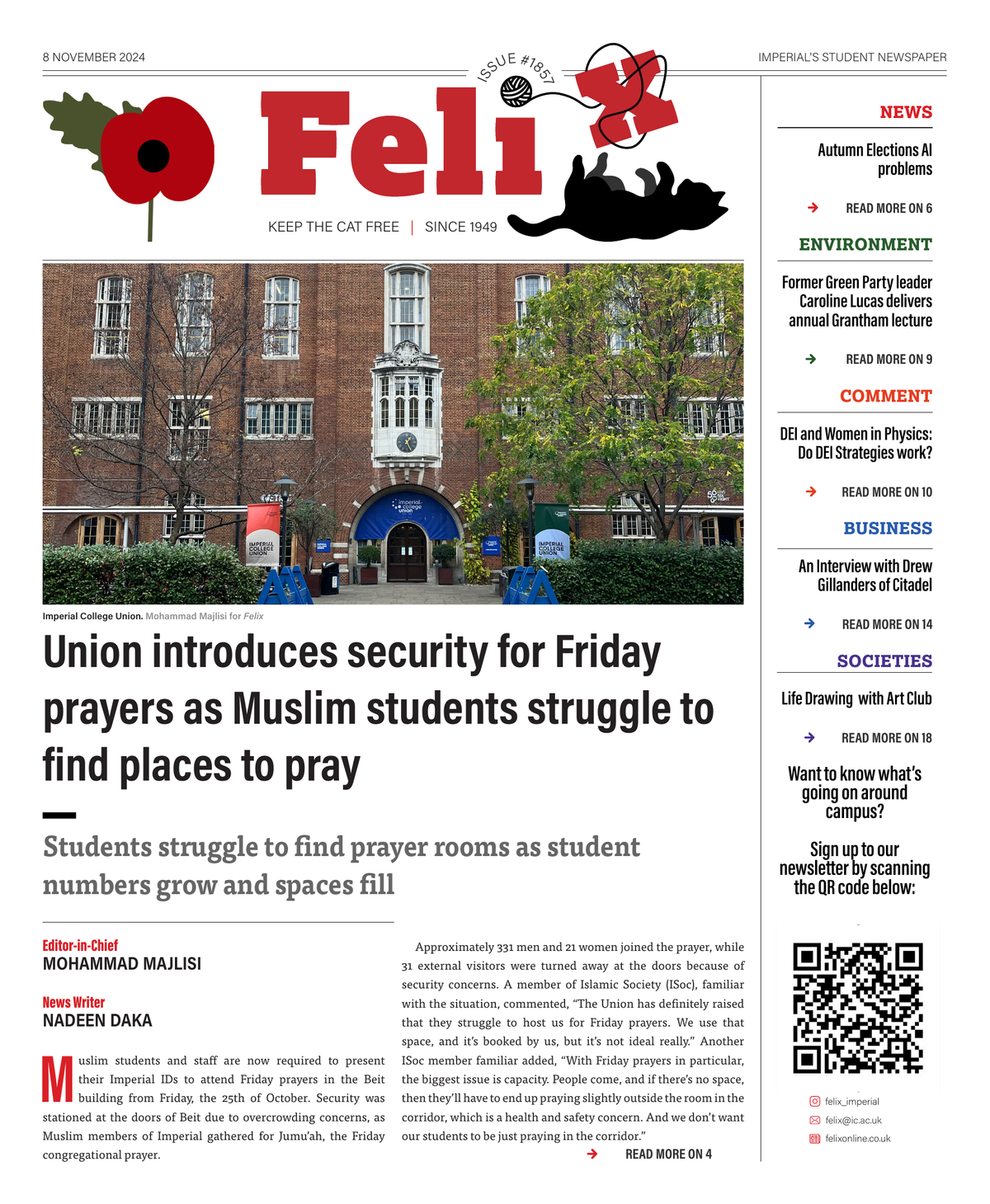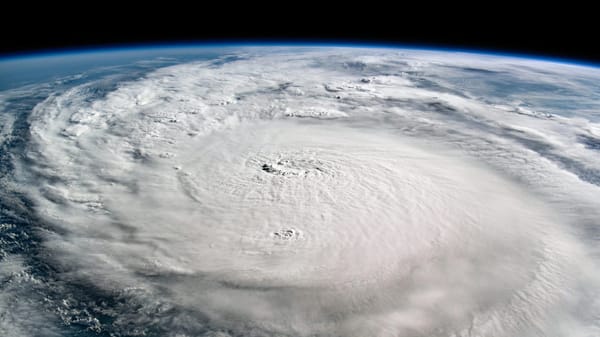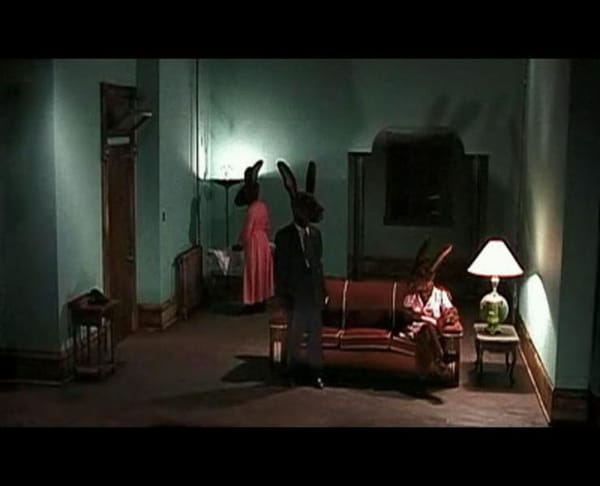"Anti-capitalism: I'm all for it" says Caroline Lucas at Imperial lecture
Grantham Institute's annual lecture cut through the noise with former Green Party co-leader and panelists.
This year's Grantham Institute Annual Lecture was given by Caroline Lucas. The former MP and Green Party co-leader spoke about the links between the growth of the far-right and of the planetary crises.
Last week, according to the United Nations Framework Convention on Climate Change Secretary General, even if every country delivers on their promises, we will still fall far short of what's needed. He relayed that this is a human and economic train wreck, Lucas explained.
Alongside this, Lucas laid out how "climate has become the new front line in culture wars" with the far-right on the rise and weaponising climate action a major feature of their playbook. Lucas' approach to addressing these twin crises is extremely intersectional: "the case I want to make tonight is that tackling climate breakdown and challenging populism are the same battle." She explained that "nationwide investment, democratic renewal, community resilience, and active hope" are not only essential solutions to the climate crisis but are also the strongest antidotes to the rise of populism.
The Reform party manifesto for example, Lucas pointed out, contains all five flavours of climate denial: "it's not real, it's not us, it's not bad, we can't fix it, [and] it's too late." However, proponents of climate action don't do themselves any favours by focusing on deadlines and taking such a technocratic approach. We lend the far-right strength by letting them set themselves in opposition to that, Lucas continued. They can portray themselves as community-focused, free-choice advocates that are essential parts of climate policymaking.
Messaging is something the Left have been terrible at for as long as I've paid attention to politics, and this really points to why. The far right can spew as much mis- and disinformation as they want, so long as they are the main group asking voters "What are you angry about?" and "What do you want?". They can then direct that energy at whatever out-group they wish.
Lucas stressed, "[We] have to be certain that no one on lower incomes loses out, period." because failing to do this again hands ammunition to the right. See the backlash to the ULEZ in London, for example. Our investments must, therefore, always be genuinely progressive.
Climate finance for adaptation and resilience continues to fall way short of what's needed. Lucas pointed out that adaptation has a special power that mitigation does not, in that it is incredibly local. Getting involved in local adaptation is essential to community resilience. Separate to the talk, leaflets from Community Energy England, that were distributed in the reception, explained, "Community energy is people getting together in their communities to work on energy solutions to the climate crisis ... all the while increasing community cohesion and resilience and delivering huge social benefits to local people."
Humans are natural cooperators, but the neoliberal narrative of people as individuals always competing with one another prevents us from realising this, Lucas explained. With her PhD in 16th century literary romance, Lucas made it clear that the arts are required to change these kinds of stories. She made the point that this narrative is crucial to a democratic renewal.
Lucas quoted Czech writer and dramatist Václav Havel saying, "hope is not the conviction that something will turn out well, but that it is worth doing no matter how it turns out." As much as adults take so much hope from young people, Lucas reminded us, they must give something back, and not only protect young people, but centre them in decision making. She concluded, "Being denied hope is a political and a moral failure."
Lucas joined Prof Tahseen Jafry, Founding Director at the Mary Robinson Centre for Climate Justice, Jon Alexander, Co-founder of the New Citizen Project, and Zamzam Ibrahim, former president of the National Union of Students for a panel and Q&A.
The panel weaved from climate justice, to storytelling, global dev elopment, to problems with politics in the UK and anti-capitalism. Jon Alexander explained how talking about anti-capitalism might not be enough, because it focuses on the thing we aim not to be. He emphasised that we cannot solve the problem from within a system that frames us as individuals.
Zamzam Ibrahim spoke eloquently about justice and how not working through a justice lens only ends up exacerbating those problems. She used an analogy from Malcolm X when talking about the need for climate adaptation and mitigation: "if you stab me nine inches and pull out the knife six inches, then you haven't solved the problem. If you pull it out all the way you still haven't solved the problem. Solving the problem is in healing. How do we heal our communities?" She explained the need to focus on how we can "unfuck ourselves and the systems and rebuild systems of justice" to a round of applause.
After the event, the energy was palpable. Ideas from such exciting speakers set a high bar for climate action at Imperial and beyond, while clearly laying out what needs to be done.










